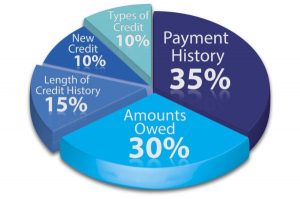Tax season represents opportunity for wily criminals searching for new identities and return dollars to steal. Every year, the number of scams seems to grow and diversify. Taxpayers must exercise caution to protect personal information and their hard-earned tax dollars. Here are the top identified tax scams to beware of in 2017:

- Phone scams. This tried and true scam continues to haunt taxpayers year after year. A scam artist will use various tactics to try to gain access to your private information. To avoid phone scams, remember that the IRS will not ever call you to:
- Ask for an over-the-phone payment
- Discuss any tax matter without sending a bill or notice first
- Take away your right to an appeal for taxes owed
- Demand that you pay using a certain payment type
- Threaten you with arrest
If a call seems suspicious, hang up and call the IRS using a verified number on a tax form or from online information to ask about the call.
- Email scams. If you handle payroll for a business or own a small business, beware payroll scams asking for employee information via email. Never release private employee data through email without verifying the request using another form of communication. Cybercriminals may also try to target individual taxpayers with similar information requests or false tax bills.
Do not reply to these emails or click on links or attachments inside these emails. Links and attachments can harbor malware. If you click on something, you could unwittingly give a hacker access to your network and private information.
- Tax return preparation fraud. While many tax preparers undergo training and work for legitimate preparation agencies, some may try to use your personal identification information for personal gain. They may file your return and direct any return payment to themselves. When you call weeks later to check on the status of your return, the fraudulent preparer could be long gone. Before you share any personal information with a return preparer, ask for his or her IRS Preparer Tax Identification Number. Keep the information with your tax filing records for future reference.
- Tax return preparer email scams. Some scam artists target legitimate tax preparers, and ask for taxpayer information. They may ask for IRS usernames and passwords for website maintenance or some other seemingly innocuous reason. No legitimate website will ask for your username and password for any reason.
- Tax snail mail scams. You may want to double check all written communication with your state tax department and the IRS, too. Scammers may try to mail falsified letters, bills, and notices to obtain payment from you.
File a Complaint
If you believe you were contacted as part of a tax scam, report the scam to relevant agencies. To report any type of scam (IRS-related or not) use the FTC’s (Federal Trade Commission’s) website. For IRS-specific scams you can also use a form from the Treasury Inspector General for Tax Administration. Forward suspicious emails to phishing@irs.gov.
Never feel the need to disclose personal information without independently verifying the request first! Protect your personal data. Do not feel bad about asking for a person’s contact information and double checking the legitimacy of any request. Scam artists will use many different tactics to try to obtain credit card, bank account, social security, and other personal identification information.
Business & Finance Articles on Business 2 Community(98)
Report Post








